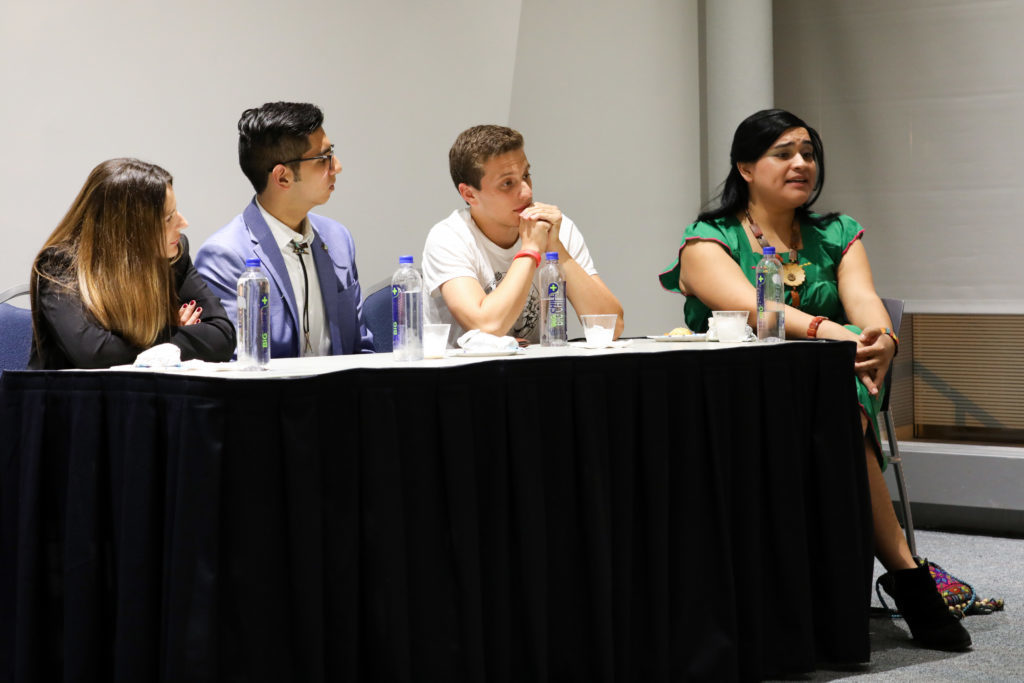Four panelists explored indigenous Latino and Native American activism in a discussion in the Marvin Center Wednesday.
The event, titled “Pan-American Perspectives: Indigenous Solidarity in Activism,” was co-hosted by the GWU Racially and Ethnically Mixed Student Association and GW Students for Indigenous and Native American Rights two days after Indigenous Peoples’ Day. The panel, composed of four Latino and indigenous activists, addressed a variety of topics, including community solidarity.
Jenadee Nanini, a D.C. lawyer specializing in family and immigration law, said activism, to her, means “a sense of responsibility and a sense of selflessness to your community and your culture.” Nanini said she focuses on preserving her culture from the oppressive forces of “white man mentalities,” capitalism and colonialism.
“You’re never assimilating, you’re never conceding, you’re never conforming, you’re always holding true to where you came from so that wears on,” she said.
Nanini said any victory in the struggle to empower traditionally disenfranchised groups is less important than collective success because the only path forward is through a combined effort.
“We really need to draw on the stories from our elders and unite to fight,” she said. “It’s not about the individual success, it’s making sure that we band together.”
André Gonzales, a junior majoring in political communication, emphasized that solidarity can only be reached by working together and through “the willingness to collaborate, the willingness to say we’re here together, how can we coexist.”
Xemiyulu Tapepechul, a transgender indigenous Salvadoran author, identifies as two-spirit, an indigenous term used to refer to people who fulfill a traditional third-gender role. Tapepechul said two-spirit people band together to survive in a society hostile to those who deviate from accepted cultural, racial or gender standards.
“There’s a lot of us that come from two-spirit communities that don’t have access to families, and don’t have access to jobs, so we depend on each other to survive,” she said.
Sebi Medina-Tayac, an indigenous community organizer and journalist, said the first step toward effective activism is defining one’s community, calling the lack of “solid” definitions “messy.”
“I think identifying your community and strengthening your community are two really important first steps in deciding how you fit in,” he said.
Medina-Tayac decried gatekeepers who restrict the definition of activism to their own narrow conceptions of the term.
“The question of who’s a real activist, I find to be totally unhelpful because those metrics are so different,” he said. “For me, being an activist looks this way, for someone else being an activist is surviving, paying their bills and taking care of their families.”
Panelists discussed the importance of not straying from the past, whether that past is positive or negative. Medina-Tayac said reflection and understanding will beget real change for indigenous Latino and Native American communities.
“The way forward is charted by the map we’ve already walked,” he said.





